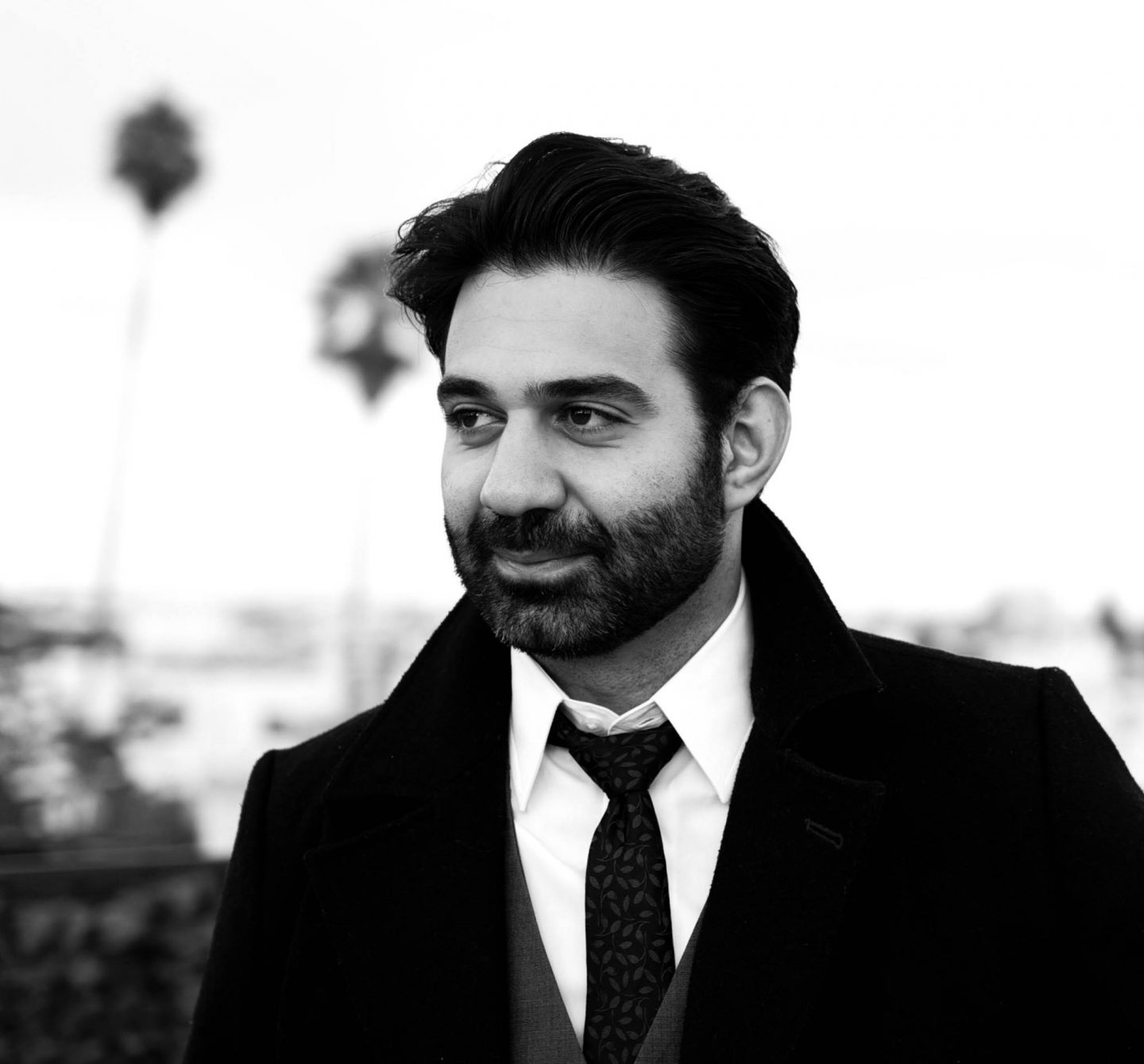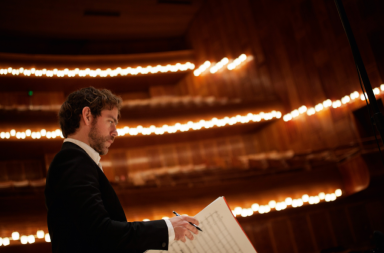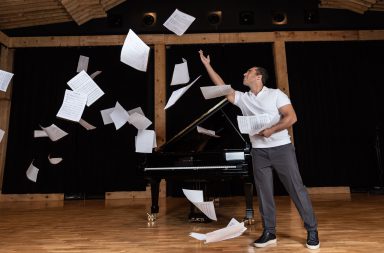Detroit: Become Human is without a doubt one of the greatest video games of the year. Released on May 25, 2018, the latest installment by Quantic Dream is, very much like all of David Cage’s games, a masterpiece in writing, directing and game-playing. And when it comes to music, your expectations should be as high as they are for the rest, since Cage has always made a point of illustrating his games with remarkable soundtracks, from his early collaborations with Angelo Badalamenti and David Bowie to the more recent Lorne Balfe score for Beyond: Two Souls. With Detroit, Quantic Dream goes one step further in musical experimentation: the game has three composers, each of whom wrote a score of his own for one of the three main characters of the game.
Set in a futuristic Detroit, the plot revolves around three androids who become autonomous. Markus is a caretaker who emancipates in order to free other androids from a lifelong servitude; Kara is a housekeeper who escapes after being attacked; Connor is a police officer who assists a human lieutenant in the investigation about an outbreak of deviant androids.
Philip Sheppard scored the character of Markus; John Paesano composed pieces for Kara. Score It Magazine talked to Nima Fakhrara, who provided musical ambientation for Connor. Nima’s electronic compositions have a curious techno-noir, retro flavour, thus differing greatly from the two other scores. Prominent in Connor’s main theme is this obsessive, recurring dark techno motif that you can hear from the very first scene of the game. Nima’s score relies heavily on synthesizers and electronic sounds, allowing the composer to impersonate the character with music, whether it is in ambient tracks (‘Kamski,’ a beautiful interior monologue about Connor’s own condition hidden behind the form of a suite led by offbeat ticking clocks and a quiet piano, and ‘Deviant,’ perhaps the most important piece of his score, which features a twenty-foot custom guitar made by the composer himself), in the multiple variations of the character’s theme (those are the complex pieces, with changing elements according to the storyline’s development) or in action cues (‘They All Look The Same,’ which feature heavy and echoing percussions as well as frantic strings). Sitting at his piano in his studio, Nima Fakhrara gave Score It Magazine an insight into his groundbreaking work on Quantic Dream’s latest effort.
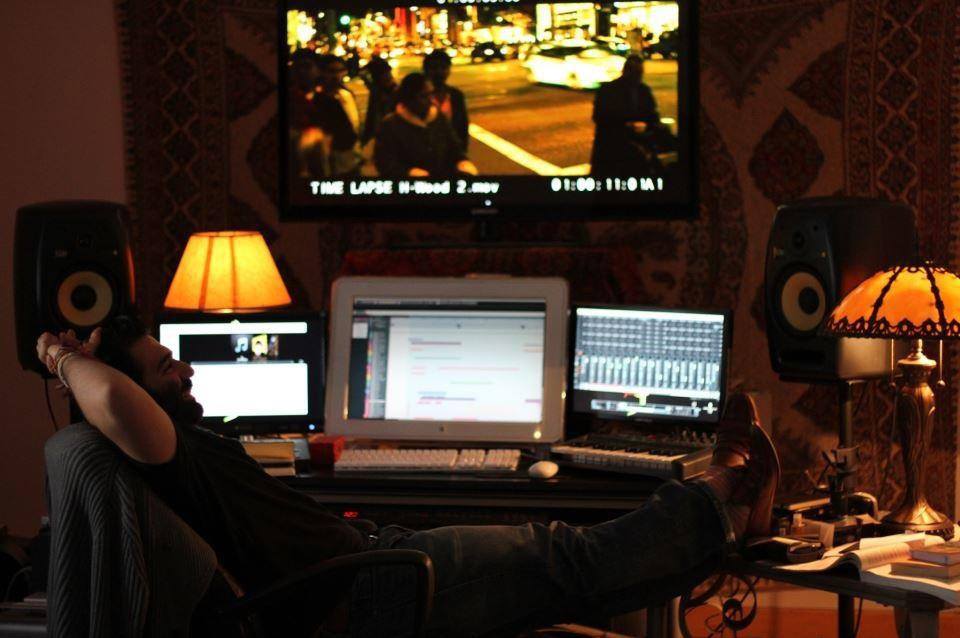
Nima Fakhrara (Source: Facebook)
Score It Magazine: How did you end up composing music for Detroit: Become Human?
Nima Fakhrara: I knew about the video game since the E3 announcement, so I was very familiar with it. But then, all of a sudden, I get a call from Mary Lockwood who was the music supervisor. She asked me about my interest on the project, and I was like, “Absolutely!”
So, you were familiar with David Cage’s games before Detroit.
Yes, a hundred percent! I knew what I was getting myself into. I am a big gamer!
You showed your skills in composing for genres like science fiction, thriller and horror. Would you call them your favourite genres?
Thriller is my favourite genre, because basically, they have everything in them: they have drama, a little bit of horror, all the aspects that get your heart racing… They basically have all the elements that a good movie needs to have. So, this is my favourite genre, and Detroit is a thriller as well.
Would you like to explore other genres, even in media other than films or video games?
Oh, sure! It’s funny enough, I have an overactive imagination and I get bored very easily. So, I like to do multiple things, not at the same time, but I like to be involved in different kinds of projects, in different timelines as it goes along. I’ve done comedies, I’ve done animation, I’ve done thrillers, horror, love dramas, romantic comedies… I like to do everything because I get to do different things over and over again. Right now, as we are speaking, I am working on a thriller and also a documentary. It gives you two different aspects of working on different things.
The ideas behind the game’s score are extremely ambitious. Did you feel a bit daunted by how big a challenge it was going to be ?
Yes. I knew that the task of creating a world for an android that could, at any point, have emotions was the most challenging part. I mean, I’ve been involved with video games before, so I knew what the task was, but the most difficult thing to do was to actually create some sort of environment for Connor. We needed to be able to go back and forth the line between the android and the deviant side of it. I did my best, and it’s up to you… I mean, to everyone to judge it (laughs)!
Can you tell me a bit about your relationship with composers Philip Sheppard and John Paesano during the process. I mean, if there was any relationship at all.
(Laughs) We were discouraged from listening to each other’s music. We were told basically, “Write whatever you wanna write, stay true to your character, don’t go out, searching for other people’s music.” To this day, I still have not had a face to face meeting with John. I’ve met Philip multiple times now, we talk often, but for us, to collaborate on this project… let’s say it was a very remote collaboration. Even in the parts of the game where the characters collide: the music team would send me their music and I would have to compose against it. And they would do the same thing for them. They would send them my music and go, “Make it Marcus-like,” or “Kara-like,” and I would take a Kara piece and make it Connor-like.
That’s kind of dangerous…
It’s very dangerous (laughs)!
I mean, what were the odds for the pieces from three different composers — who never worked together, never met and did not communicate — to work together?
I give all the credit to the music department and the audio team at Quantic Dream. I think the reason it worked was that this project and the storyline were unified, in the sense that, you have these androids that are going through this journey. All three are different, however, they are all living in a world where men are pitted against machines. So I started from there… And I knew that they were going to record with an orchestra, I knew they were going to do a very classic type of music making, so I was like, “Okay, I’m gonna do something completely different!” I used a lot of electronic synths, I recorded an electric string quartet… I basically was the wild kid (laughs)!
Can you tell me a bit about the instruments you used, and how you achieved this very peculiar sound?
To get a little nerdy, I pulled out all of my analog synthesizers that I had. The main instrument that you hear throughout the score is a Moog Voyager, which was the first thing that I put my hand on and I started playing with. There’s a lot of Moog synthesizers in it, there’s an OB-6, an MS-10, there’s a lot of modular synthesizers, and I built instruments as well.
Did you build instruments on purpose for this particular score?
Yes! The reason why I’ve built instruments was the storyline. Particularly for the character of Kemski, the creator of all of these androids that are becoming deviant. I asked myself “how would an android make his own music? How would they visualize their music and how would they do that?” The androids were built by humans, so in a way, humans manipulate them. So, building an instrument makes Connor my android, and I become the human behind him who manipulates the instrument. Also, I wanted to get some harmonics from a guitar and I didn’t know how to do it, so I started from a guitar content and proceeded from there.
Did the finished score stayed true to what you had in mind in the first place, despite the many directions offered by the storytelling?
Very much, yeah! I mean, I went out knowing that I didn’t want to record with an orchestra – and that wasn’t a budgetary issue at all, it was a choice that I made, I was not going to use an orchestra because Connor is not an orchestra person, because again, he is an electronic being. I didn’t want to put human touches or human emotions in it, so everything is very cold, very procedural… I tried to accomplish that, and I think I did… I don’t know, actually (laughs).
Did you have any references when you wrote this score? It reminded me a bit of the Blade Runner soundtrack, which is very rich in musical experimentations, especially with the synthesizers. That film opened the way to experimenting emotions with cold music and it asked ask how much humanity can be hidden within an electronic being.
Blade Runner is a very, very good example. Not the second one, the original one. If you think about it, I basically used the same instruments that Vangelis did on Blade Runner. I mean, I went out there, searching for a film noir electronic score — and there’s a lot of them — but Blade Runner is the source of inspiration for it. Detroit is very film noir-y, and as soon as you put a beautiful synth on top, it sounds a bit similar. That Vangelis score is such a signature score that it has a nostalgic feeling to it, it brings back memories. It brings us back to the idea of an android or a robot in the Blade Runner world, like an officer that all of a sudden is going to have emotions. How is that possible? How can an electronic being have emotions? Blade Runner was not the only reference, but I wanted to go towards this electronic film noir approach, and that’s what I did.
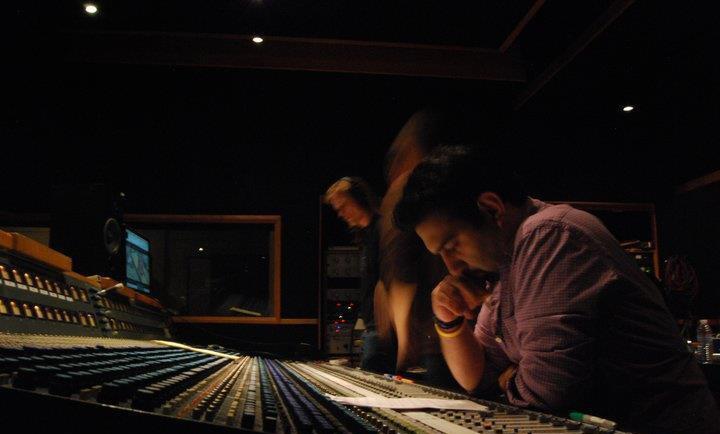
Nima Fakhrara (Source: Facebook)
The Connor motif, which is sort of this dark techno cue, is the sound that identifies the character. When and how did you come up with that?
It was the first piece that I wrote. It’s very calculated, very precise. The actor who plays Connor was here two days ago, I taught him how to play the track and he said something that I hadn’t even thought of. He said that it’s very precise in what it does, because all you have to do it put your hand on the keyboard and do this (editor’s note: he mimics the gesture of playing on the keyboard, one finger after another) and you could play the whole thing just like this. That’s what it was. I didn’t think of it but it was super calculated. Your left hand is just doing this two-finger movement. It’s very simple and at the same time, very calculated, and there is some deviancy inside of the actual melody as well. (editor’s note: he plays the melody on the keyboard) That’s the melody, and that’s the deviancy in here. It’s still very cold. Later in the game, you hear a little bit of more emotional stuff within that, that’s because I just changed the instrumentation of it.
What was the final amount of music you composed?
I think it was probably about two hours long. It wasn’t that long for a video game, but for one character, two hours, that’s a lot!
Among the next projects you have on your different timelines, is there another video game?
Not yet! We’re searching for the next one. I’m waiting for Kojima to give me a call for Death Stranding (laughs)! But I’m a huge gamer, I’m waiting for The Last of Us 2 to come out, I can’t wait to play. Death Stranding for sure… I mean, I’m a huge fan of the video game world. I can’t wait to see what they’re going to do with the next God of War… I’m excited about this world because I think it’s such an interesting platform, a true storyteller could actually tell a beautiful story, and even impacts people more than film does, because the user is engaged in it. I can’t wait what new things are going to come out. And of course, I can’t wait to see what I’m going to work on as well.
As an Iranian living in America, was there something you could relate to in scoring the character of Connor?
Yeah, absolutely! When I moved from Iran to the US, I was twelve years old. Imagine: I arrived as a little child, trying to figure out what the world I’d been dropped in. It’s funny, because I feel a little bit more American than Iranian, but at the same time, there is still something that brings me back to my roots. I mean, look at this! (editor’s note: He touches his beard) This beard makes me Iranian! It’s basically the same thing for Connor. I don’t want to spoil the game for you, but Connor gets reborn multiple times, and he just continues his journey every time he gets eliminated. There is this kind of outsider perspective… And he is an outsider! He is an outsider until he becomes what he wanted to be at the end of the game. For me, it was the same thing. I felt like an absolute outsider when I was writing it because, again, I was doing something that was completely against the norm. I was the rebel in the whole thing. I wrote something that I just wanted to write which was like, “Alright, I’m going to break every single rule that I’ve ever created for myself.” We are on a AAA game, everybody would want to record with an orchestra. I’m not going to do that. Same thing when I said: “I’m going to record a four-piece string quartet, I want you guys to bring your electronic instruments.” They were like, “Okay, we’ll bring our amplifiers.” I said: “No, we’re not going to amplify, I just want to record the instrument itself.” That’s just me being an outsider, thinking outside of the box and making sure that I could come back inside the box again.
Have you ever had the opportunity to write something especially about your roots?
I have worked on a video game called 1979 and it was very nostalgic, in the sense that I was going back to my roots, playing classical Persian instruments. But even this video game was a little bit more commercialized, it needed to have an international audience, so it’s not super Persian or super Iranian, but I’ve been searching – my agents, my publicist know it, everyone knows it – that I want to go back to those roots…
Did you get to collaborate with Iranian musicians?
On Detroit, there is one of the guys that I’ve worked with a lot, his name is Navid Hejazi. He’s not Iranian (laughs) but his father is Iranian, he grew up in Spain. He can’t speak Farsi and his English sounds like a guy from Spain. We’ve known each other for about ten years now.
How does that stimulate your creative process?
I play percussions, I don’t play any other instruments, except for the piano when I’m writing. All the instruments here in the back, I don’t play them – I make noise with them. Navid is a virtuose player, he went to the Madrid Conservatory, the Berklee College of Music… I mean, this guy can play you a Paganini like nobody’s business. But the thing I do with Navid is that, again, I break the boundaries. I have not played really soft and I recorded really, really tight, or I ask him to play something really wild… Even on Detroit, a lot of the melodies, the ostinatos or other stuff that are really high and complex, they are very difficul to be played on an actual instruments. But I put Navid to the paces, he was the musician who was able to do those parts. That is me, satisfying my own curiosity, as well as challenging my musicians to have a voice and to convey that voice into what I’m trying to say. For the whole score, I had, I think, six musicians. But again, the whole idea was to do something that was electronified, even after we recorded. I mean, Navid’s violin is all over this score, but it’s not just one Navid: it’s multiple Navids which are recorded then manipulated just like a robot would.
Interview prepared and conducted by Valentin Maniglia and edited by Marine Wong Kwok Chuen.
